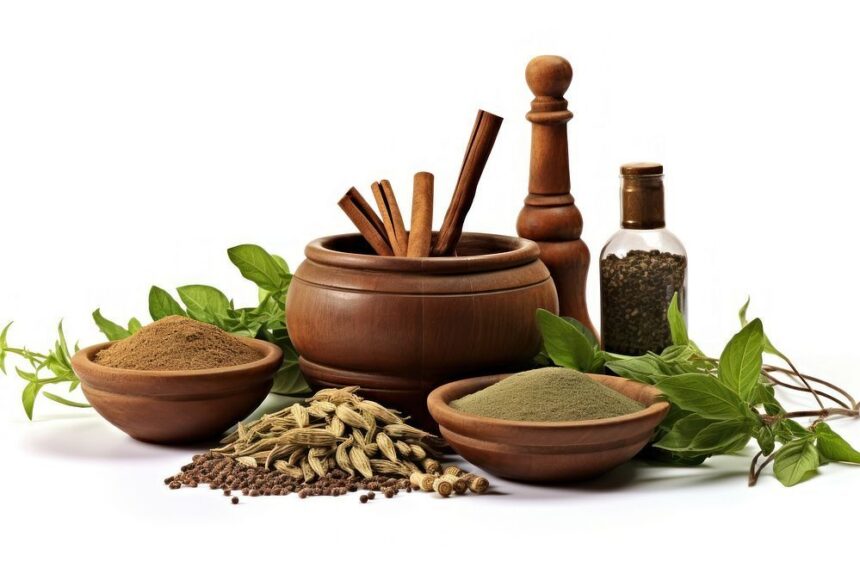🌿 Introduction: Ayurveda – The Science of Life
Ayurveda, derived from the Sanskrit words “Ayur” (life) and “Veda” (knowledge or science), is one of the world’s oldest holistic healing systems. Rooted in India over 5,000 years ago, Ayurveda continues to thrive as a guiding light for health, wellness, and spiritual balance. Unlike modern medicine, which often focuses only on curing disease, Ayurveda emphasizes prevention, natural healing, and harmony between body, mind, and soul.
- 📜 History of Ayurveda
- 📊 Timeline of Ayurveda
- ✅ Key Facts About Ayurveda
- 🌟 Significance of Ayurveda in Modern Life
- 🙏 Observance and Practice of Ayurveda
- 🎉 Wishing Through Ayurveda
- 📌 Important Points About Ayurveda
- 🔍 FAQs About Ayurveda
- ⭐ Honest Review of Ayurveda
- 🌍 Importance of Ayurveda in Society
- 🧘 Daily Life Impact of Ayurveda
- 🌟 Conclusion: Why Ayurveda Matters Today
In today’s fast-paced world, where stress, lifestyle diseases, and imbalance are common, Ayurveda is making a grand comeback—not just in India but across the globe. Let’s explore its history, facts, timeline, significance, impact on society, and even an honest review of how it can transform daily life.
📜 History of Ayurveda
The origins of Ayurveda can be traced back to the Vedic period (1500–500 BCE). It is believed that the divine knowledge of Ayurveda was revealed by Lord Dhanvantari, considered the physician of the gods.
Rigveda and Atharvaveda: These ancient texts contain hymns describing herbs, healing rituals, and preventive healthcare.
Charaka Samhita: Written by Sage Charaka (circa 1000 BCE), it focuses on internal medicine, physiology, and diagnosis.
Sushruta Samhita: Compiled by Sage Sushruta (circa 600 BCE), it is often called the “father of surgery.” It describes surgical techniques, instruments, and anatomy.
Ashtanga Hridaya: By Vagbhata, combining earlier works and offering a complete guide to Ayurvedic treatment.
Ayurveda eventually spread to Sri Lanka, Tibet, China, and later to Europe and the Middle East, influencing various healing systems worldwide.
📊 Timeline of Ayurveda
| Period | Development in Ayurveda |
|---|---|
| Before 1500 BCE | Knowledge passed orally by sages and healers. |
| 1500–500 BCE | Vedic references to herbs, rituals, and healing. |
| 1000 BCE | Charaka Samhita written – foundation of internal medicine. |
| 600 BCE | Sushruta Samhita written – surgical advancements. |
| 500 CE | Vagbhata compiles Ashtanga Hridaya – integration of knowledge. |
| 800–1200 CE | Ayurveda spreads to neighboring regions like Tibet, Sri Lanka. |
| 1600–1800 CE | Decline due to foreign invasions and dominance of Unani/Western medicine. |
| 20th Century | Revival of Ayurveda in India; institutions established. |
| 21st Century | Global recognition; integration with wellness, yoga, and modern science. |
✅ Key Facts About Ayurveda
Ayurveda is recognized by the World Health Organization (WHO) as a traditional system of medicine.
It identifies three doshas—Vata, Pitta, and Kapha—that govern human health.
Over 5,000 medicinal herbs are documented in Ayurvedic texts.
Ayurveda emphasizes Dinacharya (daily routine) and Ritucharya (seasonal routine) for balanced living.
Panchakarma (detox therapy) is one of its most popular treatments globally.
Yoga and meditation are deeply connected with Ayurveda.
Ayurveda was among the first systems to perform complex plastic surgery and cataract removal (as mentioned in Sushruta Samhita).
Modern Ayurveda blends with diet, lifestyle, and mental health management.
Kerala is considered the hub of Ayurvedic treatments.
Ayurveda continues to inspire holistic health movements worldwide.
🌟 Significance of Ayurveda in Modern Life
Ayurveda is not just about treating illnesses—it’s about living in tune with nature. Its significance lies in:
Holistic Health: Treating the body, mind, and spirit together.
Natural Remedies: Using herbs, oils, minerals, and diet instead of chemicals.
Prevention First: Focus on strengthening immunity before diseases occur.
Personalized Treatment: Every person is unique, and Ayurveda prescribes lifestyle changes based on one’s Prakriti (body constitution).
Mental Peace: Through meditation, breathing, and yoga, it helps balance emotions.
Sustainability: Encourages eco-friendly practices and respect for nature.
🙏 Observance and Practice of Ayurveda
Ayurveda is not just medicine—it is a way of life. Common practices include:
Morning rituals like tongue scraping, oil pulling, and meditation.
Herbal teas and spices like turmeric, ginger, tulsi, and ashwagandha.
Abhyanga (oil massage) for relaxation and improved blood circulation.
Seasonal detoxes with Panchakarma therapies.
Balanced diet (Satvik food) suited to one’s dosha.
Daily yoga and pranayama for body–mind harmony.
🎉 Wishing Through Ayurveda
Just like festivals and traditions, Ayurveda connects to blessings and well-being. A common Ayurvedic-inspired wish could be:
“May your body be strong, your mind be calm, and your spirit shine with balance. May Ayurveda guide your path to health and happiness.”
📌 Important Points About Ayurveda
It is the world’s oldest medical science still practiced today.
It emphasizes balance over suppression of symptoms.
It connects nature, diet, and spirituality.
It offers personalized healing, unlike generic prescriptions.
Ayurveda is more about long-term well-being than quick fixes.
🔍 FAQs About Ayurveda
Q1. Is Ayurveda scientifically proven?
Ayurveda has both ancient wisdom and modern research backing it. Many herbs like turmeric and ashwagandha have proven medicinal benefits.
Q2. How is Ayurveda different from modern medicine?
Modern medicine often treats symptoms; Ayurveda treats the root cause and focuses on prevention.
Q3. Can Ayurveda cure chronic diseases?
Yes, many chronic conditions (like arthritis, diabetes, stress, digestive disorders) can be managed effectively through Ayurvedic lifestyle and remedies.
Q4. Is Ayurveda safe for everyone?
When followed properly and under expert guidance, Ayurveda is safe. However, self-medication with strong herbs can be risky.
Q5. Why is Ayurveda gaining popularity again?
Because people are seeking natural, holistic, and sustainable ways of healing in contrast to chemical-heavy treatments.
⭐ Honest Review of Ayurveda
Ayurveda has received both praise and criticism. Here’s a balanced review:
👍 Positive Aspects:
Effective in managing lifestyle diseases like stress, obesity, and digestion problems.
Long-term health benefits with minimal side effects.
Promotes eco-friendly, natural living.
Works in harmony with yoga and meditation.
👎 Challenges:
Results may take longer compared to modern medicine.
Lack of global standardization in practice.
Misuse by untrained practitioners can cause mistrust.
Overall Verdict: Ayurveda is not a quick fix, but a transformative lifestyle system. If practiced with guidance, it can bring lasting health, balance, and peace.
🌍 Importance of Ayurveda in Society
Healthcare alternative: Provides affordable and natural options.
Cultural heritage: Preserves India’s ancient wisdom.
Global wellness trend: Spas, yoga centers, and wellness retreats worldwide use Ayurveda.
Sustainability: Encourages use of organic herbs, reducing chemical dependency.
Mental health support: Offers meditation and lifestyle solutions for stress.
🧘 Daily Life Impact of Ayurveda
Adopting Ayurveda in small ways can deeply impact your life:
Drinking warm water with lemon in the morning for detox.
Using turmeric, ginger, and tulsi for natural immunity.
Practicing oil massage to improve circulation.
Following seasonal routines for better energy.
Including mindful eating and yoga daily.
These practices not only prevent illness but also improve energy, mood, and productivity.
🌟 Conclusion: Why Ayurveda Matters Today
Ayurveda is more than ancient medicine—it’s a philosophy of healthy living. In a time when modern life brings pollution, stress, and diseases, Ayurveda teaches us how to return to balance, live naturally, and heal holistically.
By respecting Ayurveda, we’re not just honoring India’s heritage but also adopting a sustainable path for future generations.
So, whether you try herbal remedies, follow dosha-specific diets, or practice yoga with Ayurvedic wisdom, one truth stands clear:
👉 Ayurveda is not just about adding years to life—it’s about adding life to years.
✨ Wishing you health, harmony, and happiness with the timeless wisdom of Ayurveda! 🌿








